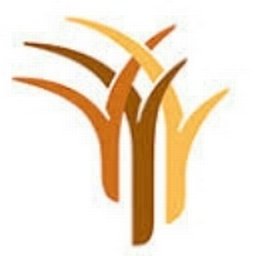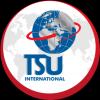Development Facilitator
Midrand, GP, ZA, South Africa
Job Description
The role of the Development Facilitator is to promote sustainability within the programmes of the Infrastructure Delivery Division (IDD) and to foster strategic partnerships that support inclusive development. A key aspect of this role is to ensure meaningful community participation and ownership in all development initiatives, programmes, and projects, thereby enhancing long-term impact and accountability.
Key Responsibilities
KEY PERFORMANCE AREAS:
1. Stakeholder Engagement
Identify and map all relevant stakeholders associated with the projects/ programmes. Facilitate strategic partnerships with Non-Governmental Organisation's (NGOs) and Community Based Organisation's (CBOs) to help communities to maximise the social impact and ensure the sustainability of assets delivered by the DBSA. Organise and conduct stakeholder workshops to secure buy-in, promote collaboration, and foster a sense of ownership throughout the development process. Establish and manage stakeholder committees with clear representation, defined roles responsibilities and mechanisms for engagement and communication. Oversee the development and signing of stakeholders or development charters to formalise commitments and accountability. Drive ongoing engagement of stakeholder committees throughout all project phases, maintaining regular communication with the Project Steering Committee (PSC). Facilitating stakeholder participation during the handover of assets to ensure smooth transition and sustainable utilisation.
2. Social Facilitation
Engage directly with community members to understand their needs, expectations and concerns. Facilitate inclusive community meetings and participatory workshops to encourage active involvement in planning and implementation. Promote community ownership of infrastructure projects to enhance sustainability and long-term socio-economic benefits.
3. Conflict Resolution
Proactively identify potential sources of conflict between communities, contractors, and other stakeholders. Mediate and resolve disputes effectively to minimise project delays and protect community and project interests. Implement early warning mechanisms to detect and address tensions before escalation.
4. Governance and Reporting
Participate in Project Steering Committee (PSC) meetings (bi-weekly or monthly, depending on project requirements). Prepare and submit written reports to the PSC and the Programme. Participate in Project Steering Committee (PSC) meetings (biweekly or monthly, depending on project requirements). Prepare and submit written reports to the PSC and the Programme Manager on progress, risks, and social impact outcomes. Identify, assess, and manage risks related to social facilitation, stakeholder relations, and community dynamics on progress, risks, and social impact outcomes. Identify, assess, and manage risks related to social facilitation, stakeholder relations, and community dynamics.
Key Measurements of Outputs
Number of stakeholder engagement sessions conducted for new projects.
Number of community meetings held during the initial stages of projects.
Number of new Project Steering Committee (PSCs) established and frequency of their functional meetings.
Number of PSCs charters developed and signed for new projects.
Number of PSC meetings held across new and existing projects.
Response turnaround time in addressing community or business forum disruptions/ disputes.
Percentage of project reports incorporating updated development output indicators (e.g. social impact, local job creation and SMME participation.
Percentage of Social Facilitation Closeout Reports completed at project closeout stage.
KEY INTERNAL LIAISON RELATIONSHIPS
Group Executive: IDD
Head: Infrastructure Delivery
Programme Manager
Construction Programme Manager
All DBSA Divisions
Overall DBSA management
KEY EXTERNAL LIAISON RELATIONSHIPS
External Service Providers
External stakeholders
External Client(s)
Communities
Expertise & Technical Competencies
MINIMUM QUALIFICATIONS & EXPERIENCE
Qualification:
A degree in Social Sciences, Development Studies or an equivalent field.
Experience:
A minimum of five (5) years' experience in people-centred development and community-driven programmes.
In-depth understanding of the principles and practices of sustainable development, including social, environmental, and economic dimensions.
Proven experience in the design, coordination, and management of development and stakeholder engagement processes.
Demonstrated capability to build and nurture strategic partnerships and alliances with key stakeholders, including government entities, NGOs, CBOs, and private sector partners.
Demonstrated leadership ability in directing and guiding the formulation and implementation of Development Charters or similar participatory frameworks.
Sound knowledge of national development policies, frameworks, and sustainable development approaches relevant to infrastructure delivery.
Excellent communication skills (both written and verbal), with the ability to convey complex concepts clearly to diverse audiences including community members, executive management, and high-level stakeholders.
A valid Code 08 driver's license and willingness to travel to project sites as required.
Desirable Requirements:
A Postgraduate Degree in Social Sciences, Development Studies or an equivalent field will be an added advantage.
TECHNICAL COMPETENCIES
a) Written Communication
Is relied on by others to help them write complex technical and non-technical documents and briefs. Is able to determine which aspects of this knowledge area need to be transferred to others in order to achieve organisational goals. Coaches others and transfers communication skills and knowledge to others.
b) Presentation Skills
Knows how to deliver arguments persuasively by employing a range of advanced presentation techniques (e.g. the appropriate use of body language, how to close a presentation so that the audience continues to think about the subject matter etc.). Has knowledge of various feedback mechanisms to check levels of audience understanding.
c) Business Acumen
Takes actions to fit business strategy. Assesses and links short-term tasks in the context of long-term business strategies or perspectives. Reviews own actions against the organisation's strategic plan; includes the big picture when considering possible opportunities or projects or thinks about long-term applications of current activities. Anticipates possible responses to different initiatives. Understands the projected direction of the industry and how changes might impact the organisation.
d) Negotiations
Has an appreciation of cultural sensitivities and differences. Effectively employs a variety of advanced behavioral /interpersonal competencies to control the negotiation situation. Is able to take the lead in a variety of sensitive negotiation situations requiring high levels of tact and diplomacy. Is able to place a discrete negotiation situation within the context of a broader long-term relationship and is not threatened by conceding ground to protect the longer-term interests of DBSA.
e) Data Collection and Analysis
Based on knowledge of the reasons behind the analysis, is able to define the most appropriate means of data collection. Is able to develop formats for data collection. Is able to define the most appropriate internal and external data/information sources. Identifies key facts in an array of data, recognises when pertinent facts are incorrect, missing, or require supplementation or verification. Breaks down data into component parts to understand the nature and relationship of the parts. Has a broad knowledge of statistical data-handling techniques. Can undertake more comprehensive analysis of data/information but is not required to draw conclusions.
Required Personal Attributes
LEADERSHIP/BEHAVIOURAL COMPETENCIES
a) Achievement orientation
Undertakes challenging assignment and strives to complete them. Sets priorities and chooses goals on the basis of calculated costs, anticipated benefits and improvement of performance. Aims at exceptional performance, setting out to achieve a unique standard. Constantly analysis outcomes to ensure the achievements of business goal. Identifies short-term opportunity or potential problems aiming to achieve better outcomes.
b) Customer Orientation
Tries to understand the underlying needs of customers and match these needs to available or customized products and service. Adapts processes and procedures to meet on-going customer needs. Utilises the feedback received from customers, in order to develop new and / or improving existing services / products that relates to their on-going needs. Thinks of new ways to align DBSA's offering with future customer needs.
c) Integrity
Is willing to end a business relationship because it was associated with unethical business practice. Is capable of challenging senior management (in an appropriate and respectable manner) in order to act on espoused values.
d) Leading and empowering others
Creates the conditions that enables the team to perform at its best (e.g., setting clear directions, providing appropriate structure, getting the right people, obtain needed resources). Monitors performance against clear standards, and addresses performance issues promptly and takes action to get performance back to desired levels. Proactively asks for feedback on own performance from team members, aiming to become more effective.
e) Teamwork and cooperation
Acts to promote a friendly climate and good morale and resolves conflicts. Creates opportunities for cross-functional work. Encourages others to network outside of their own team / department and learn from their experience.
f) Self-awareness & self-control
Withholds effects of strong emotions in difficult situations. Keeps functioning or responds constructively despite stress. May apply special techniques or plan ahead of time to manage emotions or stress
g) Strategic and Innovative thinking
Recognises opportunities or potential problems, before they become obvious, by seeing the connections in a range of sources of information, including insights from outside DBSA. Restates complex knowledge in a way that makes it easier for others to understand. Experiments with new approaches, tests scenarios, questions assumptions and challenges conventional thinking. Creates new concepts that are not obvious to others, leveraging internal and external sources of information, to build incremental revenue and growth opportunities.
h) Teamwork and cooperation
Acts to promote a friendly climate and good morale and resolve conflicts. Creates opportunities for cross-functional work. * Encourages others to network outside of their own team / department and learn from their experience
Beware of fraud agents! do not pay money to get a job
MNCJobs.co.za will not be responsible for any payment made to a third-party. All Terms of Use are applicable.
Job Detail
-
Job IdJD1589821
-
IndustryNot mentioned
-
Total Positions1
-
Job Type:Full Time
-
Salary:Not mentioned
-
Employment StatusPermanent
-
Job LocationMidrand, GP, ZA, South Africa
-
EducationNot mentioned



